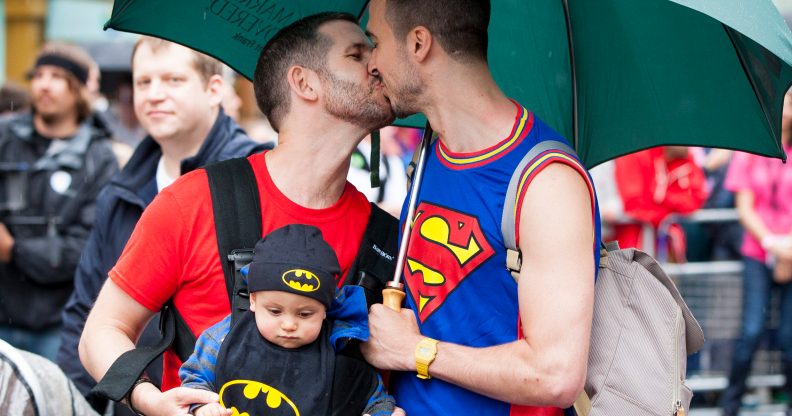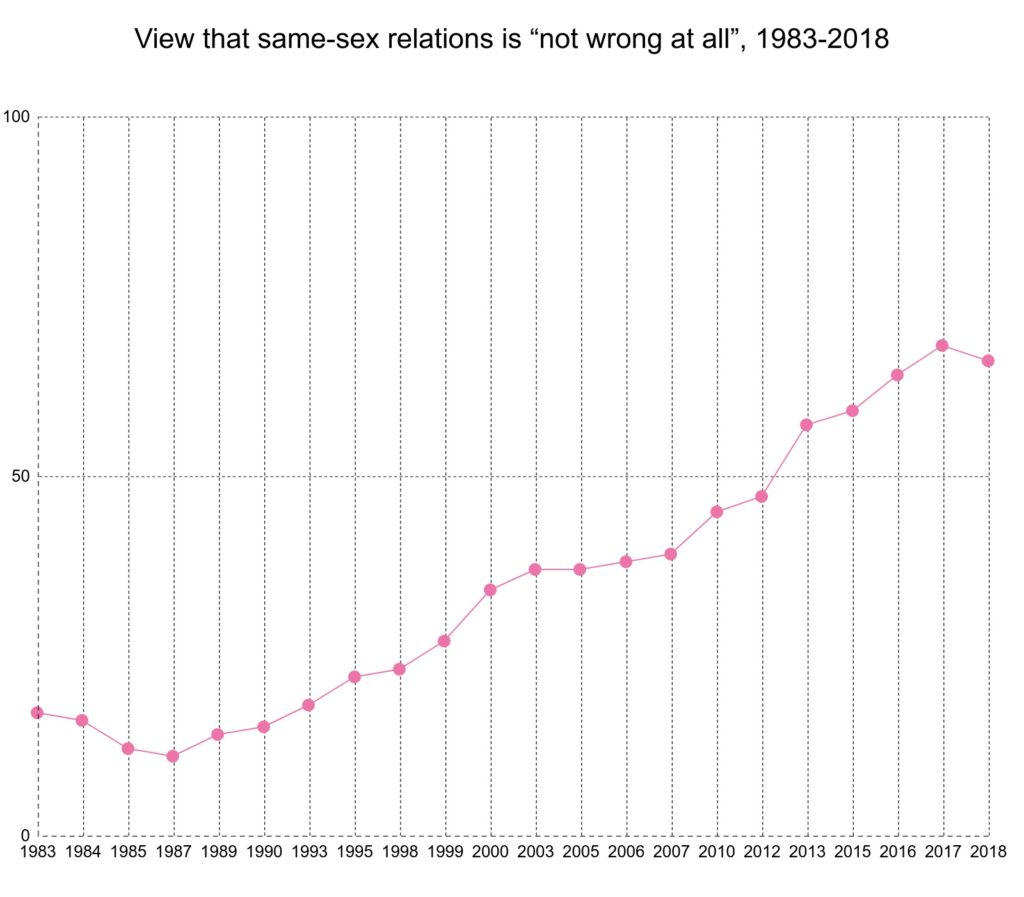Acceptance of gay people has stalled in the UK

Two men share a kiss as they take part in the LGBT parade during the annual Pride In London parade on June 28, 2014 in London, England. (John Phillips/Getty)
Acceptance of same-sex relationships in the UK appears to have stalled, with no significant increase in support recorded over the past few years, according to concerning new findings from the British Social Attitudes survey.
Findings published on Thursday (July 11) as part of the long-running National Centre for Social Research survey suggest that acceptance of same-sex couples has reached a plateau, with no significant increase recorded year-on-year since 2016.
Between 1987 and 2017, the number of adults who said that same-sex relations are “not wrong at all” increased every time the question was polled, rising from just 17 percent to 68 percent.
Acceptance of same-sex relationships has hit a ‘point of plateau’
However, the number has since remained stable, with two-thirds of Brits believing that same-sex relations are “not wrong at all.”
The findings for 2018 published this week actually recorded a small drop to 66 percent, which is within the margin of error of results from 2016 and 2017.

Acceptance of same-sex relationships in the UK has hit a plateau after 30 years of growth, according to the British Social Attitudes survey (Chart: PinkNews)
NatCen Social Research questioned whether acceptance has now peaked.
The body wrote: “The liberalisation of attitudes [towards gay relationships] does appear to be slowing down.
“This year’s BSA data show that the liberalisation of attitudes does appear to have decelerated.
“The proportion stating that sexual relations between two adults of the same sex are ‘not wrong at all’ has now remained at around two-thirds for the past three years, indicating that while social norms have changed, there is a significant minority of the population who remain uncomfortable with same-sex relationships, and as such we may have reached a point of plateau.”
The report notes: “While we have a new and radically transformed set of social norms in the field of sexual relations and gender, we also have a significant minority who feel differently about these issues, and that minority may become increasingly focused on ensuring that socially conservative views and voices are reflected in public discussion of gender and relationships.”
Laura Russell, Stonewall’s Director of Campaigns, Policy and Research, told PinkNews: “We know we need to change more people’s attitudes before everyone feels free to be themselves. This is crucial because many LGBT people still don’t feel safe in Britain.
“Far too many experience hate crime, discrimination and abuse in their day-to-day lives.
“We need everyone who cares about equality to help make change happen and to come out in support of lesbian, gay, bi and trans people everywhere.”
UK has seen wave of protests against LGBT-inclusive education
Opposition to same-sex relationships has become a focal point in some parts of the UK over the past year, with a wave of protests against LGBT+ inclusive education outside schools in Birmingham and other cities.
Protests resumed outside Birmingham’s Parkfield Primary School this week, calling on the school to drop the ‘No Outsiders’ anti-bullying programme that includes lessons about different types of relationships.
At a protest outside the school on Tuesday, one speaker said: “Don’t teach our children that gay is OK, because in Islam gay is not OK.
“We have to tolerate it, we have no issues against someone who practices sodomy, let him do it at home.”

